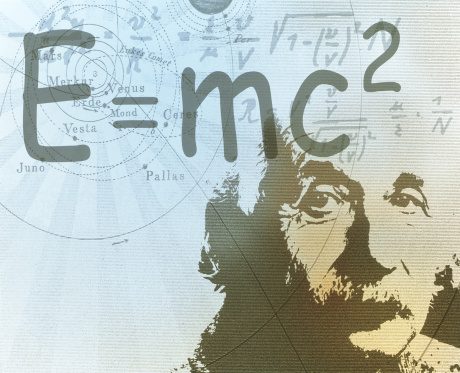(单词翻译:单击)
Physicists as a rule are not overattentive to the pronouncements of Swiss patent office clerks, and so, despite the abundance of useful tidings, Einstein’s papers attracted little notice. Having just solved several of the deepest mysteries of the universe, Einstein applied for a job as a university lecturer and was rejected, and then as a high school teacher and was rejected there as well. So he went back to his job as an examiner third class, but of course he kept thinking. He hadn’t even come close to finishing yet.
物理学家一般不大重视瑞士专利局职员发表的东西,因此尽管提供的信息又多又有用,爱因斯坦的论文并没有引起多少注意。由于刚刚解开宇宙中几个最难解开的谜团,爱因斯坦申请大学讲师的职位,但是遭到拒绝,接着又申请中学教师的职位,再次遭到拒绝。于是,他重新干起三级审查员的活儿——不过,他当然没有停止思索。他离大功告成还远着呢。
When the poet Paul Valéry once asked Einstein if he kept a notebook to record his ideas, Einstein looked at him with mild but genuine surprise. “Oh, that’s not necessary,” he replied. “It’s so seldom I have one.” I need hardly point out that when he did get one it tended to be good. Einstein’s next idea was one of the greatest that anyone has ever had—indeed, the very greatest, according to Boorse, Motz, and Weaver in their thoughtful history of atomic science. “As the creation of a single mind,” they write, “it is undoubtedly the highest intellectual achievement of humanity,” which is of course as good as a compliment can get.
有一次,诗人保罗·瓦莱里问爱因斯坦,他是不是随身带着个笔记本记录自己的思想,爱因斯坦稍稍而又着实吃惊地看了他一眼。“哦,那是没有必要的,”他回答说,“我极少带个笔记本。”我无须指出,要是他真的带个本子的话,倒是很有好处的。爱因斯坦的下一个点子,是一切点子中最伟大的点子——布尔斯、莫茨和韦弗在他们很有创见的原子科学史中说,这确实是最最伟大的点子。“作为一个脑子的独创,”他们写道,“这无疑是人类最高的智力成就。”这个评价当然很高。


